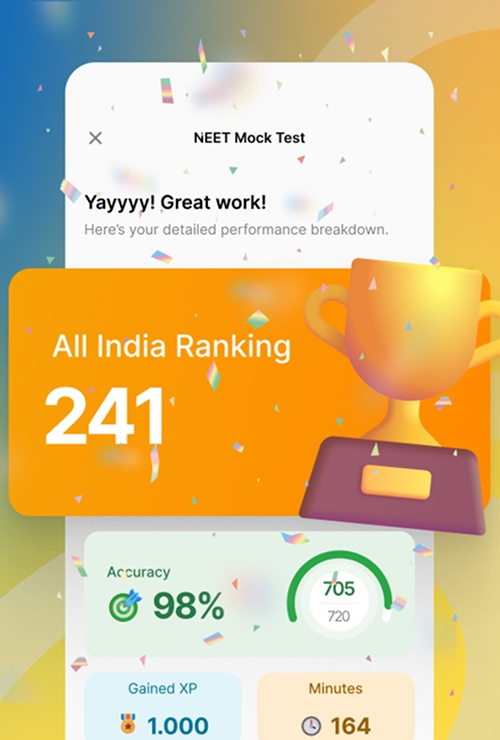
☝️ At a glance
- The MBBS in Singapore lasts six years for Indian students, comprising five years of academics and one year of internship, and is recognized by NMC and WHO.
- Indian applicants need a minimum of 60% in PCB at Class 12, a valid NEET score to get admission to a medical university.
- Tuition fees for MBBS in Singapore range from ₹2,561,400 to ₹3,415,200 annually.
- The doctors in Singapore earn between ₹6,234,370 to ₹10,907,000 annually, in a healthcare system ranked 6th globally by WHO.
Introduction
Singapore is an island country situated in Southeast Asia. Over the period of time, Singapore has produced many successful doctors. The country offers a 5-year MBBS degree programme. In Singapore, universities like: National University of Singapore, Nanyang Technological University, and Duke-NUS Medical School offer a full MBBS programme. Singapore is considered a bit expensive, but despite this, the annual tuition fees are affordable, as compared to countries like the UK or the USA. The government also provides scholarships to students so that their expenses can be covered. Singapore provides high-quality education and a robust healthcare system, also ranked 6th by the WHO. The unemployment rate is low there, which motivates students to pursue medicine there.
This article is the overview of your MBBS degree in Singapore. All the important information has been covered, so keep reading!

Become a global doctor with MBBS abroad!
Studying abroad can be affordable and stress-free with futureMBBS:
- World-recognized universities with English-taught programs
- On-site support in partner university cities
- Guaranteed placements & internships for hands-on experience
From selecting universities and supporting you with the application process to orientation and finding accommodation – we are at your side.
Highlight of MBBS in Singapore
Category | Details |
Course name | MBBS |
Recognition | NMC & WHO |
Eligibility | Class 12 with 60% marks in aggregate in Physics, Chemistry and Biology |
MBBS course duration | 5 years + 1 years internship |
NEET requirement | Yes (compulsory for NEET students) |
English test required | IELTS and SAT |
Medium of teaching | English |
Why study MBBS in Singapore?
The several reasons for choosing Singapore for the MBBS programme are:
Singapore universities provide advanced medical facilities and high-quality education with practical exposure. The universities had advanced and modern infrastructure to meet the requirements of the medical students.
The medium of instruction is English, and the structure of the programme is easily adaptable, so students from every corner can pursue it.
The unemployment rate is low there, so once MBBS is done, a job is not an issue.
Singapore offers high-quality living, with a good environment and a healthcare system.
Degrees are compliant with major authorities like WHO and NMC.

Eligibility criteria
Students who want to pursue MBBS in Singapore should meet a few requirements:
The candidate must be 17 years old and have completed high school with a science background.
IELTS or TOEFL scores to demonstrate English language proficiency
Qualifying for the NEET entrance exam is mandatory for admission to Singapore.
Duration of MBBS
As already mentioned above, the course lasts for 5 years, but sometimes it can extend to 6 years as well. The MBBS in Singapore is well Indian medical students the course
However, for Indian students, the course typically extends to 6 years. The MBBS in Singapore is well-structured to provide a strong academic foundation along with hands-on clinical training.
Top medical colleges in Singapore
Singapore is a leading destination in Asia for pursuing an MBBS, with medical university recognized by both WHO and NMC. The candidates do not have to take any medical college admission test. This makes their medical colleges a strong choice for Indian as well as international medical students.
National Skin Centre
The National Skin Centre in Singapore is a premier dermatology specialist hospital offering advanced clinical care, research, and education. It focuses on skin diseases, providing cutting-edge treatments, fostering innovation, and training healthcare professionals in dermatology and related fields.
SGH Postgraduate Medical Institute
SGH Postgraduate Medical Institute, affiliated with Singapore General Hospital, provides advanced postgraduate medical education and training. The Singapore Management University offers specialist training programs, continuing medical education, and research opportunities, fostering clinical excellence and preparing healthcare professionals for leadership roles in various medical specialities.
Yong Loo Lin School of Medicine, National University of Singapore
The Yong Loo Lin School of Medicine is Singapore’s oldest medical school, renowned for its research and clinical education. It offers a comprehensive MBBS program, that emphasizes innovation, global health, and interdisciplinary learning to produce skilled, compassionate medical professionals.
Lee Kong Chian School of Medicine, Nanyang Technological University
Lee Kong Chian School of Medicine integrates medical education, research, and clinical practice, emphasizing patient-centered care and community health. The reputed medical colleges offer an MBBS curriculum focused on inquiry-based learning and collaboration with healthcare partners to train future-ready medical practitioners.
Academy of Medicine Singapore
The Academy of Medicine Singapore serves as a professional body advancing medical education, specialist training, and research. The concerned medical college promotes medical excellence and ethical practice through fellowships and continuous education programs. This Singapore university fosters collaboration among healthcare professionals across specialities.
Duke NUS Graduate Medical School
Duke NUS Graduate Medical School offers graduate-entry medical education emphasizing research, innovation, and clinical excellence. This top medical university collaborates with Duke University and Singapore health institutions, focusing on translational medicine and training physician-scientists to address global healthcare challenges and world class medical education.

Study medicine abroad with 100% support!
futureMBBS offers full support to make your dream of studying medicine abroad a reality.
- Hassle-free admission guidance
- Fast-tracked visa processing
- Post-arrival support, including accommodation assistance
Fee structure for Singapore medical degrees
If you are looking to pursue an MBBS course abroad then there are several National technical universities. Refer to the following section to know about college-wise Singapore fee structure and hostel fees of medical colleges:
Medical University in Singapore | MBBS Fee Structure of Medical College |
National Skin Centre | 32,47,000 Per Year |
SGH Postgraduate Medical Institute | 12,000,00 Per Year |
Yong Loo Lin School of Medicine, National University of Singapore | ₹34,00,000 Per Year |
Lee Kong Chian School of Medicine, Nanyang Technological University | ₹38,00,000 Per Year |
Academy of Medicine Singapore | 27,000,00 Per Annum Tuition Fee |
Duke NUS Graduate Medical School | 28,000,00 Per Annum Tuition Fee |
Full cost of studying for MBBS Degree in Singapore
Living costs while studying MBBS in Singapore typically cover essential expenses like accommodation, transportation, food, utilities, internet, and personal needs apart from the year tuition fee academy. These costs vary by location and lifestyle but form a major part of a student’s overall budget for pursuing medical courses. Read to know about the details of expenses apart from affordable tuition fees:
Expense category | Estimated Cost (Per Month) in INR |
Accommodation | ₹37,000 - ₹1,24,000 |
Food | ₹18,500 - ₹37,000 |
Transportation | ₹5,000 - ₹9,300 |
Utilities & internet | ₹6,200 - ₹12,400 |
Health insurance | ₹31,000 - ₹49,600 per year |
Top scholarships for Singapore MBBS 2025
Smart Scholarships program offers financial help to Singapore students. Refer to the section below to know about the top scholarships applicable to MBBS graduates looking to pursue undergraduate programs MBBS in Singapore.
1. Singapore International Graduate Award (SINGA):
SINGA offers full funding for international students pursuing PhDs in science and engineering at A STAR, NUS, NTU, or SUTD. It includes a monthly stipend of ₹130,180 to ₹162,725, airfare, and a settling-in allowance, covering up to four years.
2. ADB-Japan Scholarship Program (ADB-JSP):
This scholarship supports postgraduate students from ADB member countries, offering full tuition, monthly living allowance and study materials. It targets courses in economics, management, and science at select institutions like NUS and NTU.
3. Lee Kong Chian Graduate Scholarships:
Awarded at NUS, this PhD scholarship offers an ₹2,149,470 monthly stipend, full tuition, examination fees, plus a one-time laptop and travel allowance. Applicants willing to pursue MBBS in Singapore must be full-time PhD candidates eligible for Singapore’s Ministry of Education subsidy to qualify.
Career opportunities
The healthcare system in Singapore is advanced, but career progression depends on local licensing, residency availability, and specialisation. Know about the major career opportunities after completing MBBS in Singapore.
Medical Officers in Public Hospitals
Residency Training (Specialization Pathway)
General Practitioner (Private Clinics)
Clinical Research Associate
Medical Administrator
Public Health Officer
Lecturer in Medical Institutions
Medical Advisor in Pharmaceuticals
Drawbacks of studying in Singapore
Studying in Singapore can be challenging due to its rigid academic structure and limited flexibility in course changes. Refer to the following section to know about the drawbacks of studying MBBS in Singapore:
International students often pay significantly more than locals to study MBBS degree making affordability a concern.
Scholarships are competitive and few, especially for undergraduate international applicants
The on-campus accommodation is limited, pushing students to seek expensive private housing options.
Why is Europe becoming the preferred choice for studying MBBS?
Europe is increasingly favoured for MBBS studies due to its student-friendly visa policies, modern infrastructure, and wide range of international collaborations. Here are the key reasons for pursuing an MBBS course from international universities.
Study MBBS programs in Europe are significantly cheaper than those in the US or UK, without sacrificing quality.
Medical degrees from European universities are accepted by WHO, ECFMG, and other global bodies.
Many universities offer MBBS courses entirely in English which eliminates the need to learn a new language.
Students benefit from early and diverse clinical training, enhancing real-world medical skills.
Conclusion
Choosing to pursue an MBBS in Singapore provides Indian students with excellent education and strong career prospects. The program emphasizes hands-on clinical experience and opens doors to opportunities in countries such as Singapore. If you're aiming to study medicine abroad, Future MBBS is here to support and guide you throughout your journey.
Your medical career abroad starts here!
Thinking of pursuing MBBS abroad? Don’t just dream it, do it!
Start your MBBS journey!Frequently asked questions
1. How much does MBBS cost Indian students in Singapore?
The annual tuition fees for MBBS programs at top universities like NUS and NTU range from approximately INR 33–38 lakhs for international students.
2. Is NEET required for MBBS in Singapore?
Yes, Indian students must have a valid NEET score to apply for MBBS programs in Singapore.
3. What are the fees for MBBS in Singapore?
Annual tuition fees for MBBS programs at NUS and NTU range from approximately INR 33–38 lakhs for international students.
4. How much NEET score is required for MBBS in Singapore?
A minimum NEET score of 500 is typically required for admission to MBBS programs in Singapore, though specific requirements may vary by university.
5. How long is MBBS in Singapore?
The MBBS program in Singapore is 5 years long for Singaporean students. For international students, including Indians, the program duration is typically 6 years.







